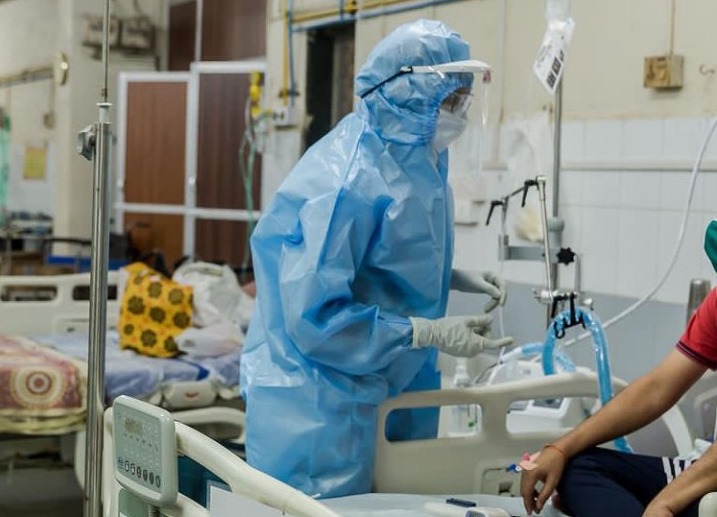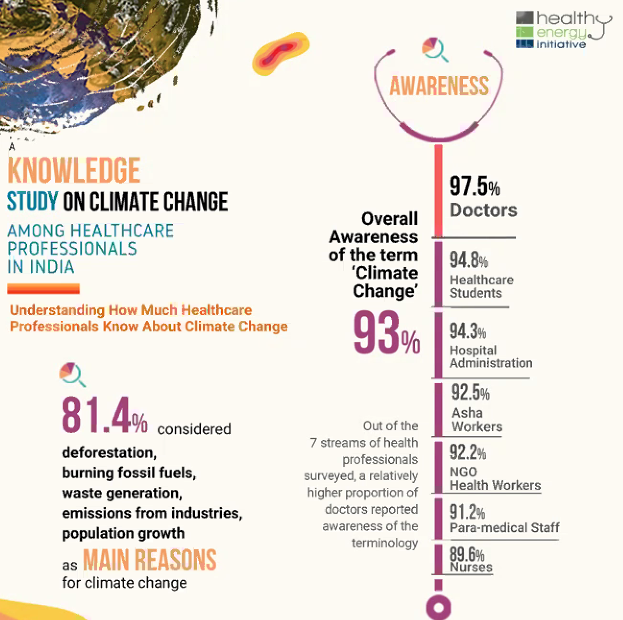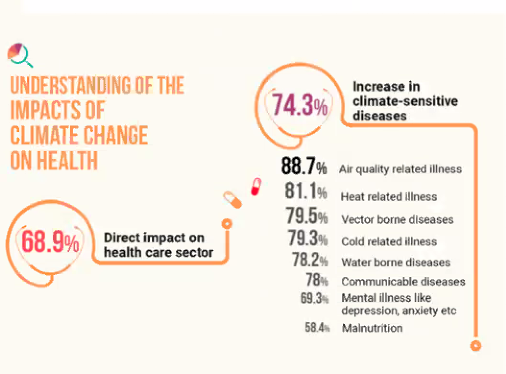A first-ever guidance document for healthcare workers on climate change and impact on human health
The impacts of climate change such as heatwaves, floods, wildfires, infectious diseases, are all exacerbating the existing health threats especially in the COVID19 pandemic. In order to respond to the crisis, a guidance document has been prepared for healthcare workers in India.


Image used for representation purpose. @NancyTh67286737/twitter
In response to the challenges thrown due to the COVID19 pandemic, a first-ever guidance document has been designed to prepare healthcare workers in the country for conversations around climate change and its impact on human health.
Healthy Energy Initiative, a national network of health professionals, health organisations, and academic research institutions in partnership with health organisations, has launched a first of its kind guidance document – ‘No Vaccine for Climate Change – A Communication Guide on Climate and Health for the Healthcare Professionals in India’.
Climate change is the greatest challenge to public health in the 21st century. It is threatening air, food, water, shelter and security. The impacts of climate change such as heatwaves, flood storms, wildfires, air and water pollution, infectious diseases, migration, conflict are all exacerbating the existing health threats. This was highlighted by healthcare experts in a webinar yesterday June 15.
It was suggested that there is a need for preparedness for both the health professionals and the health sector to respond to the threats posed by climate change.
The guidance document is a result of a study released in February this year which highlighted the perception and practice of the healthcare sector towards climate change. It asserted the health sector should play a crucial role in action and advocacy on climate change in India.
As per the study, 93 per cent of health professionals in the country are aware of the basics of climate change, only about 55 per cent of them actively raised awareness or participated in climate change related activities and events.


Guidance document on climate change for healthcare workers
The guidance document has incorporated the recommendations of the study and provides a comprehensive overview of the health impacts which can be expected from climate related impacts, like heat waves, floods, drought, cyclones, air pollution. It also includes details of infectious diseases, allergens, and the preparedness required from healthcare professionals and health systems.
Based on the responses, the February study provided recommendations to effectively build capacity among healthcare professionals and advocates, emphasised on the need to provide nuanced information of the multiple ways (direct, indirect and through economic and social disruption) in which health could be adversely impacted due to climate change.
It further recommended that climate change and health impacts should be a subject in the medical curriculum for education of healthcare professionals from all streams and specialisations. Healthcare professionals should be provided with information and training on the international negotiations on climate treaties, especially the Paris Agreement and detailed information regarding state and national action plans on climate change and human health, in an easy-to-understand format.

